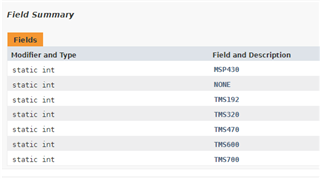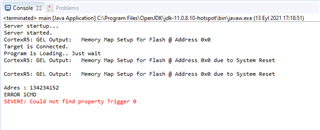Part Number: TMS570LC4357
Other Parts Discussed in Thread: MSP430F169
Hello,
I am trying to create a plugin for my code.
In my plugin I need to make a graph of my variables.
In order to do this I am using Eclipse Committers 4.14 which is adaptable with CCS 10.1.1.
My question is, How can i reach to my variables on TMS570LC4357 from Eclipse Committers IDE.
What should I do? I dont want to use serial communication, because UART codes are slows my code, it is so critical to access my variables direcly on the code composer studio's expression tab.
I am waiting for your response,
Best regards,,



